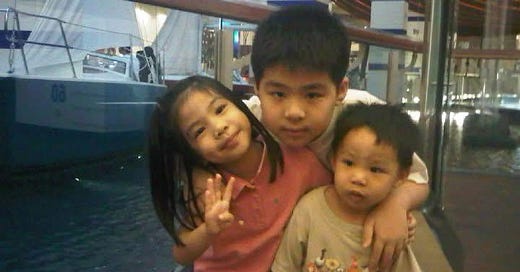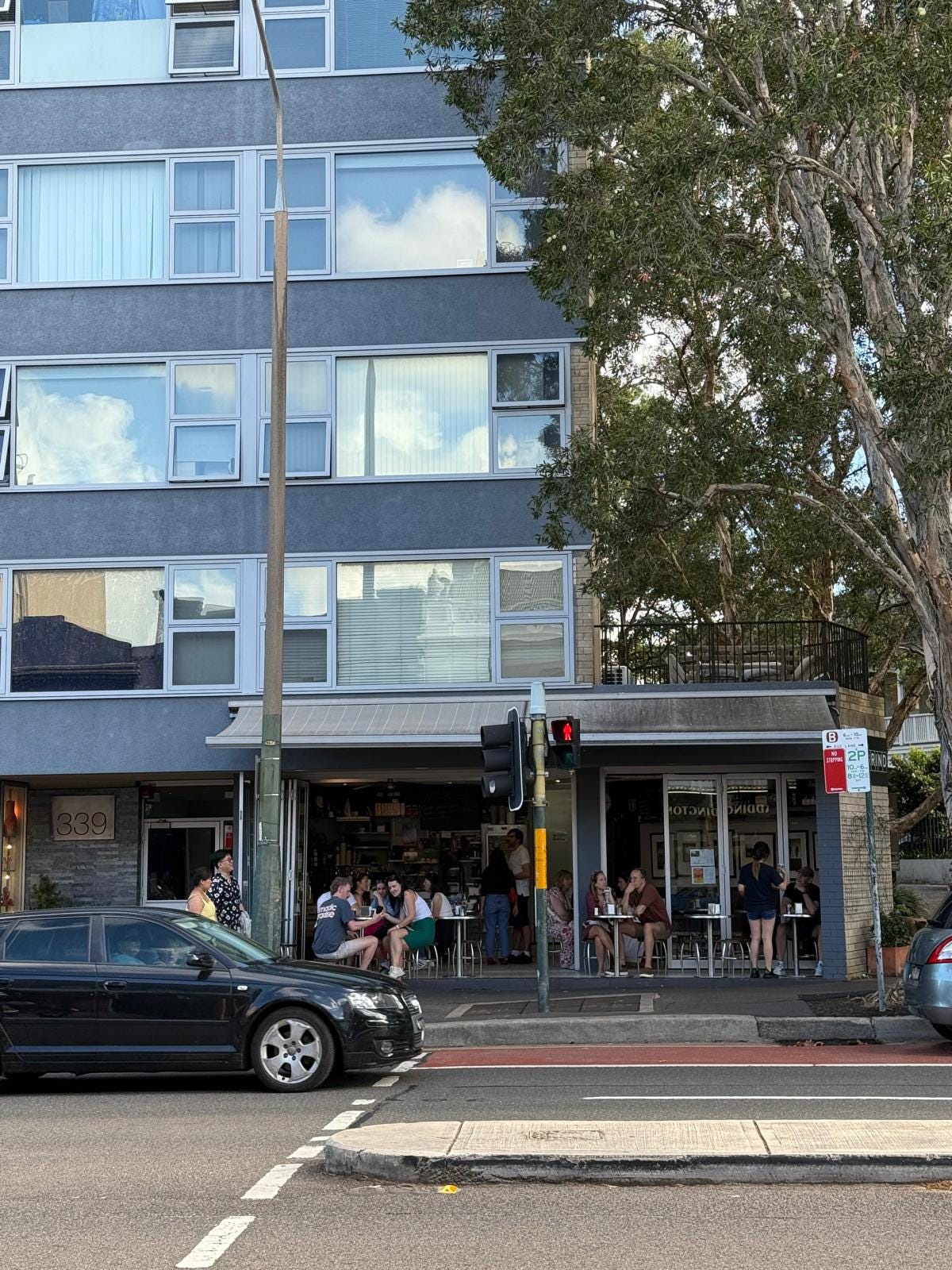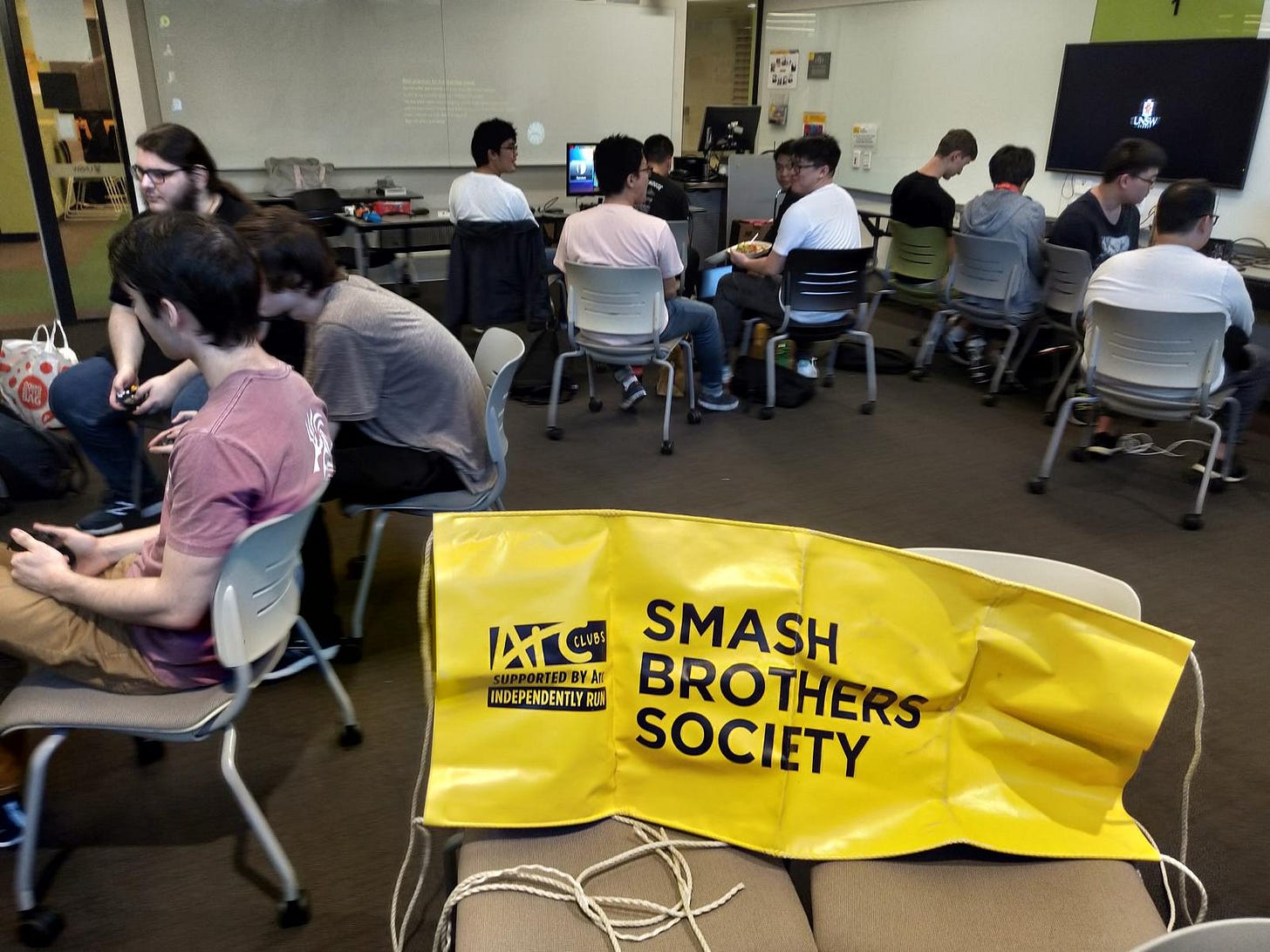What are we if not the stories we tell ourselves?
As I write this, I’m having an iced latte at Paddington, Australia.
I was pretty appalled see it was $8.50, nearly double the cost of a hot latte ($4.50) but that’s just how it is with iced drinks here. I was served by a twelve-year-old named Aidan who not only asked me if I wanted a drink to start but also tried to up-sell me a cake or pastry when I said I wasn’t hungry (what a legend).
I’m overlooking Oxford Street — a pretty well-known road here in Sydney that cuts through the hip district of Surry Hills, shady pillars of Darlinghurst, cutting through the fashionable high-grounds of Paddington and towards the emblematic, postcard-plastered Bondi. It is the location of Sydney’s Gay & Lesbian Mardi Gras Parade, Oceania’s biggest celebration of LGBTQIA+ culture.
Paddington in particular is known for its hipster-like aesthetic, old-school bookstores, classical English inns with booze and schnitties, both international and local fashion brand sporting jewelry, dresses and suits caked between a variety of Western dining joints and a bucket load of coffee shops — one of which I’m sitting at today. I’ve got a seat wedged against a wall (my preference because I don’t like knowing that someone is capable of reading my screen), overlooking, once again, Oxford Street.
As I sit here, the UK comes to mind.
Not just because my girlfriend is there as at the time I’m writing this, but because this is how I’ve pictured coffee shops in Europe and the UK to be structured like. I’m reminded of that French restaurant in Circular Quay where my partner and I enjoyed sun-kissed verandah seating. I’m reminded of those century old coffee shops in Buenos Aires that overlooked Plaza de Mayo which I was too intimidated to try.
I feel the sunlight. I hear the chatter. I watch people of all shapes and sizes, languages and laughter. I have a coffee + croissant, or a tartare + Aperol Spritz.
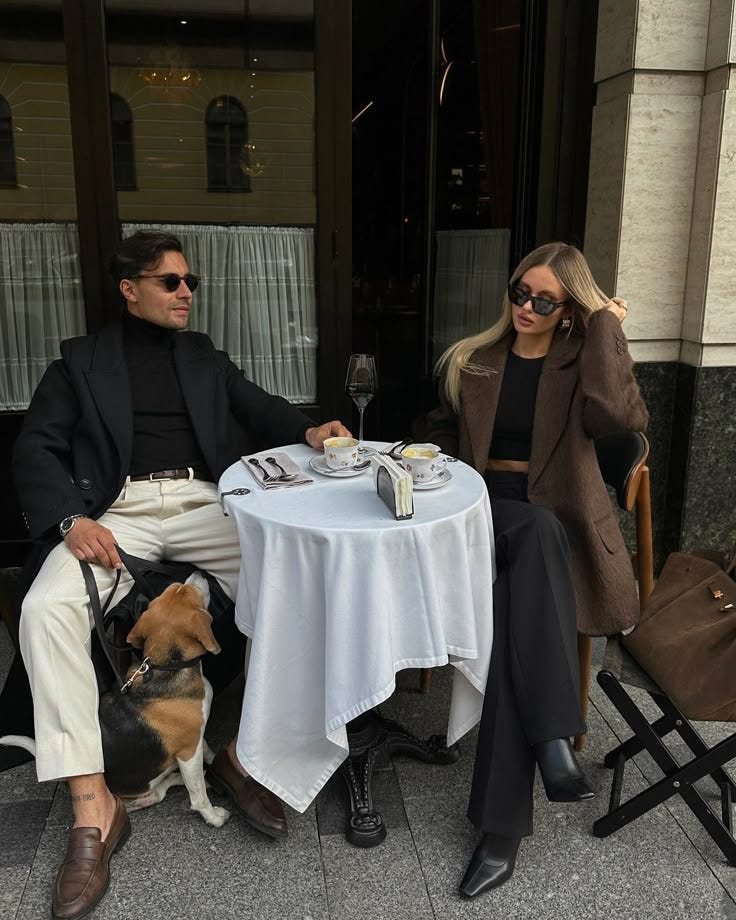
It’s giving old money. It’s giving classical music. It’s giving sportscoats and sunglasses and penny loafers and a Sally Rooney novel pulled out of a Dior Book Tote. Steaming wands. Cutlery. Discussion which stimulates the mind.
As I work on this little piece for my little newsletter which, by the way, when I had sat down I had literally no agenda in mind for this piece other than the title of this post — I’m feeling like Ernest Hemingway at Cafe La Rotende or Hans Christian Andersen at Antico Caffe Greco. I’m reminded of Cafe Tortini in Argentina, where for a moment I had felt like part of history, dining where Einstein and Borges one dined. My body remains on this dingy metal chair but my imagination travels over land, ocean and sky — incorporeal.
What are we if not the stories we tell ourselves?
We cannot change the past but we can change the stories we tell ourselves
A lot of my current tendencies, good and bad, are impacted by my upbringing.
It’s no secret that our environment has a massive influence in how we act today. I think it’s even more than we think. In some cases, my actions originate from how I was treated at the time and in other cases, they are simply reinforced by them.
You can call it childhood trauma. I know a lot of people do in order to give it weight and meaning and an antagonist to overcome.
I think it’s a bit dramatic to call it childhood trauma. It’s not like someone died, well, most of the time.
Then again, this was my fourteen-year-old self. He with his fragile body, his inexperienced brain, his soft and sheltered and sensitive heart who did not — could not, know any better.
He had a good childhood. I’m very pleased that did. But like the bruise on my forehead that glints oddly under the right light and sports a rather embarrassing story — it wasn’t hard to hurt him, change him, to smash his confidence into a million bits.
However, the fact of the matter is this: reasons are not excuses.
All feelings are valid. Not all feelings are justified.
Trauma does not forgive poor behaviour. Trauma does not give you permission to be rude. Trauma does not give you the privilege of imposing it onto others, continuing that cycle of suffering and destruction.
I still think I’m a sheltered kid and I’ve grown to be way more appreciative of that naivety. The wrong conversation at the right time and I could have panned out differently.
I’ve grown to view past grievances as learning experiences.
I’ve adopted a more internal locus of control.
It’s taken me a while to write myself this way, and I’ve still a long way to go.
Luckily for me, I’ve got the rest of my life to do so.
We cannot change the past but we can change the stories we tell ourselves.
The stories we tell ourselves can constrict and expand our lives
My first office job was in Paddington, so it’s a little poetic that I’m writing about this here.
(In hindsight, it’s probably why this topic had even come to mind.)
Late 2021, I was on a manic job application spree — terrified at the prospect of not having a role upon graduating university, especially after seeing the nightmarish job market after the wake of COVID-19.
(As such, I’m very grateful that I had one extra year of university to go instead of graduating in the incredulous, unprecedented downturn of 2020. It is a privilege more than I know to get a role right out of university.)
I had no work experience. No internships. No hackathons. No competitions. No awards. I barely even got the exemptions as part of my actuarial degree: 2/6 and on the easiest topics too.
I was a 70% average student from a fairly competitive degree but other than that — I didn’t have much experience to speak for myself other than tutoring I had done nearly five years prior at a foreign country.
(Looking at this now, even having that tutoring experience was very good — but I didn’t know that. I grew up in a climate where half of everyone I knew had some kind of internship, half of which were in major banks or accounting firms. The other half had tutoring experience.)
But there was one thing that I had which was really, really out of the ordinary — something that I was once rather nervous to share, something that my parents gave me a hard time for but had eventually grown to be a central component of my brand and personality: being in charge of UNSW Smash Society.
I took over the club right before the start of COVID-19 and lowkey, brought it across the brink of disbandment. Through Smash, I learnt that universities were more than just places to gain employment certifications, but for connection and community building, and how video games were so uniquely equipped to do that.
And through the nightly conversations and malding at hitboxes and learning the odd language of Super Smash Bros Melee, I learnt a bit about myself too: that I’m a decent leader, that I’m pretty good at event management, that I could tell a joke to a crowd and have it bang with response, that I may not be the best player in the room but have a knack at making others shine (no pun intended).
That’s what I told my interviewers. I have demonstrated leadership. I have demonstrated passion. I have dealt with nasty, sometimes literally foul-smelling stakeholders. I have been in scenarios that tested and trained my soft skills and I love cultivating an environment of friendship, improvement and problem-solving.
And hey, it got me my first job! I definitely wouldn’t have gotten in without being able to speak about that experience — just disregard the fact that I got performance-managed out of it lol; though it continued to form my primary value-add for my second job.
To this day, three years out of university, I still have it on my resume as my key piece of volunteering experience and I don’t think I’ll take it out for a while.
While I don’t play too much nowadays and fumble my inputs spectacularly, I still attribute a lot of my personal confidence to Smash — it has opened more jobs, opportunities and friendships than I could ever realise.
The stories we tell ourselves can constrict or expand our lives.
We tell ourselves stories order to live
I wrote my first retrospective at the end of 2020.
It was written in the form a multi-part Instagram story where I typed each line of text separately and meticulously cropped it against a black background.
I don’t remember the specifics of it (and certainly don’t want to open it because I know I’ll cringe so hard at it) but know it centred around a quote that appears towards the end of indie-now-giant video game franchise: Undertale.
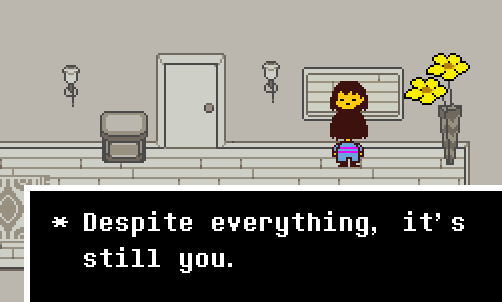
Since then, writing retrospectives became one of my annual rituals.
It’s five years in a row so far1 — from COVID-stricken 2020 to 2024’s exploration on intentionality.
I use it as an annual attempt to kickstart my writing again. It either proceeds a streak of writing, like in 2023 where I drafted 50,000 words in November as part of NaNoWriMo in a project called Nurture — or this 2024, which catapulted into writing this newsletter and being more consistent than ever.
I use it as an annual rekindling of conversation. It’s oddly good at starting chats with friends, both old and present, seeing where we resonate with one another and lowkey reminding each other of our existence.
It is, most importantly though, a checkpoint: How have I operated on my pillars of intentionality, progression, appreciation and balance? What kind of story will I assign to it?
If you want something to improve, start measuring it.
That’s what the retrospectives are for.
They are barometers for my quality of life — one that’s pretty frowned upon by most scientific methods though, because it has a unique property of also making it better.
I have a pretty basic answer to “What is the meaning of life?”
To me, it’s defined entirely by you — It’s your responsibility to take destiny by its wicked reins and steering it as you see fit.
The stories we tell ourselves have the uncanny ability to shape the way we think, to reverse our perspective — calling rain in a scorching dessert, summoning light in a dark tunnel; it broadens our thinking, fuels our imagination, enriching our lives like a dollop of honey.
We tell ourselves stories in order to live.
Unfortunately, the links to my retrospectives are on dead sites that have been killed off (Twitlonger) or I no longer pay the subscription for (lightwood.blog). In case you were curious though, they were about:
2020 - Posted via an Instagram Story, with the central phrase of “Despite everything, it’s still you.”
2021 - Posted on Twitlonger, a letter of appreciation towards the online communities which have kept me sane throughout Australia’s lockdown periods.
2022 - Posted on lightwood.blog, an attestation to be more unapologetically myself and engaging in less consumption, more creation.
2023 - Posted on lightwood.blog, centred around ‘recovery a sense of identity’ and ‘addressing my inner child’. It featured a picture of me at ten years old at the end, which I thought was a sweet, lovely touch.
2024 - This one’s on my Substack, linked here, revolving around leading a life of intentionality and appreciation for where I am today.

